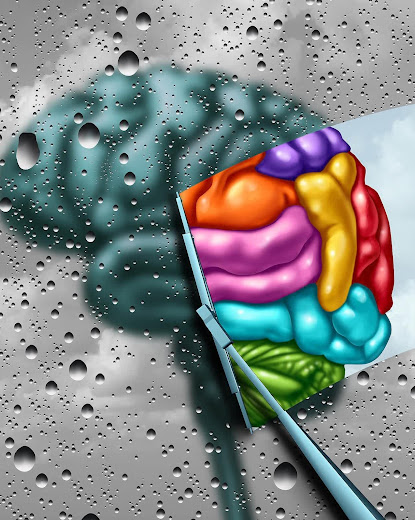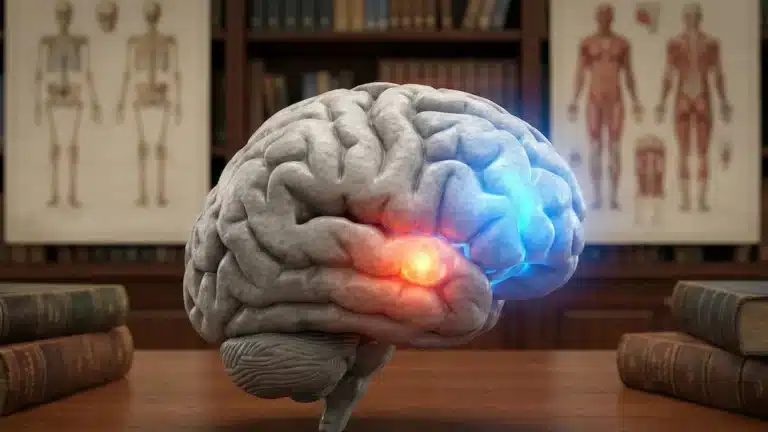Can Anxiety Be Caused By ADHD?
You may have noticed that many with ADHD also deal with anxiety. A lot of people are unaware that ADHD can trigger anxiety and make it worse, in addition to coexisting with it. Since anxiety affects an estimated 25–40% of adults with ADHD, it is important for anyone who is dealing with both ADHD and anxiety to understand this connection.
The association between anxiety and ADHD is not merely the product of bad luck or genetic predisposition; rather, it is a natural consequence of how ADHD affects your brain’s ability to function in daily life. According to recent studies, anxiety disorders can be directly triggered by the symptoms of ADHD.
The Relationship Between ADHD and Anxiety: More Than Coincidence
Anxiety and ADHD are not coincidental partners. Anxiety disorders are up to 6 times more common in people with ADHD than in the general population, according to research. Anxiety thrives because of the very symptoms that characterize ADHD. ADHD can lead to chronic worry and stress that is created when your brain has trouble with executive functioning.
The Neuroscience Behind It All
The prefrontal cortex, the area of the brain in charge of executive functions like planning, decision-making, and impulse control, is the main area affected by ADHD. As a result, the nervous system gets a little wonky as well. Then, your brain will experience chronic stress due to struggling with everyday tasks. This stress then tells the brain’s alarm system, the amygdala, to begin to look for dangers and issues all the time. This hypervigilance eventually turns into the ongoing fear and worry that define anxiety disorders.
Dopamine and norepinephrine levels in the brain are also impacted by ADHD. These neurotransmitters are essential for mood stability and attention control. Anxiety thrives in the ideal neurochemical environment when they are out of balance because of ADHD.
Let’s Talk About How Anxiety Can Be Caused by ADHD Symptoms
Executive Dysfunction Leads to Overwhelm
Executive dysfunction can create challenges that leave you feeling overwhelmed. When you struggle to organize thoughts, prioritize tasks, or follow through on plans, the simple activities can even feel impossible. This struggle to manage executive functions can lead to a cycle where unfinished tasks fuel anxiety and self-doubt. The stress of falling behind or of being inadequate can persist, despite your best efforts to stay productive. All of this mixed together can often lead to anxiety.
Then, your everyday life becomes unpredictable due to the executive dysfunction, which goes far beyond simple forgetfulness. Every day turns into a minefield of possible hazards when you can’t trust your brain to guide you through your obligations with ease. Because your brain cannot consistently predict or control outcomes, worry sets in. Your brain is constantly looking for issues and anticipating that something will go wrong. This hypervigilance, over time, becomes the anxiety you feel.
The Dangerous Cycle of Procrastination and Panic
Millions of people with ADHD experience the following typical situation: Your brain finds it difficult to get started on a crucial project. The project often feels impossible to start or overwhelming. Then you put off the project and tell yourself that you’ll finish it later when you have more motivation. However, “later” turns into tomorrow, then next week, and then the deadline is just around the corner. The anxiety takes over. Focusing becomes even more difficult due to the increasing pressure and this results in a terrible cycle of:
-ADHD makes it difficult to focus on or begin tasks.
-Stress and guilt increase with procrastination.
-Anxiety impairs your focus and judgment.
-Performance declines which just validates your concerns about failing.
Then, the cycle repeats.
And because each repetition reinforces negative beliefs about your abilities, this cycle becomes especially harmful. When you struggle with neurological differences that call for particular strategies and support, you start to perceive yourself as unreliable, lazy, or fundamentally flawed. And sometimes you wonder if the world around you perceives you in this way as well.
Chronic Lateness Anxiety and Time Blindness
“Time blindness”- The inability to accurately gauge how much time has passed or how long tasks will take. Time blindness is quite annoying for those with ADHD. Time blindness results in several situations that cause anxiety:
Chronic Lateness: With chronic lateness you often underestimate the time required for tasks. So, you are often late and that negatively impacts relationships and your reputation both socially and professionally. Being late can cause such severe anxiety that you may completely avoid committing to plans completely.
Deadline Panic: Deadlines seem to come up out of nowhere when you have time blindness. Projects you thought you had weeks to finish are now due tomorrow instead. The panic sets in and you end up with a poor quality of work.
Rejection Sensitive Dysphoria: When Criticism Is Like a Catastrophe
Rejection sensitive dysphoria (RSD), a strong, overwhelming emotional reaction to perceived failure, rejection, or criticism, is common in people with ADHD. This is a reaction that can feel like physical pain; it’s not just being “sensitive.”
RSD increases anxiety by causing:
Social Hypervigilance: You are always on the lookout for rejection or disapproval. You analyze every tone of voice and facial expression and this makes every day social interactions tiresome. Your fear of criticism can cause perfectionism. And this can become so intense and strong that it paralyzes you, stopping you from finishing tasks because you fear they won’t be perfect enough.
Relationship Anxiety: You may perceive everyday disagreements as warning signals that others will leave you, which could result in withdrawal from relationships or, the opposite, people-pleasing tendencies.
Examples of ADHD Causing Anxiety In The Real World
The Performance Anxiety Spiral at Work or School
The Meeting Disaster: You arrive at a meeting without the report you were expected to prepare. Either your ADHD brain completely forgot about it, or it became preoccupied with other things. Anxiety overwhelms you as you watch coworkers anxiously await your response, then you fumble through explanations as you internally worry about your job security.
Email Overwhelm: There are thousands of unread emails in your inbox. The sheer volume paralyzes you every time you open it. You tell yourself you’ll deal with it later and close it once more. Important messages become buried day in and day out, and the fear of missing something important intensifies but the executive dysfunction prevents you from addressing the problem as a whole.
Connection Issues in Relationships
The Forgotten Anniversary: You totally forgot your partner’s birthday. Now you have to tell them you forgot or scramble to come up with a gift that probably won’t be very personal. Because of this, you experience increasing guilt and anxiety about being a “bad partner”. You start to worry that your partner will leave you because you are unable to remember important details and dates.
Conversational Disasters: Because of your impulsive ADHD, you often abruptly change the subject or interrupt others. After each interaction you spend hours reliving the exchange, worried about how the other person felt about it. And now you are worried that you have permanently ruined the relationship.
Managing Everyday Life
The Bills That Multiply: You never get the mail and when you do you never open it. It accumulates on the countertop because it is too much to handle. Late payments, misplaced bills, and accrued late fees all occur as a result. The perfect storm of stress is created when financial anxiety and shame about being “irresponsible” roll together.
Household Chaos: You try but your house gets cluttered easily. Every disorganized space makes you anxious about what other people might think, which makes you shy away from entertaining and makes you feel more and more isoltated.
The Effect on the Body
Managing ADHD symptoms can cause ongoing stress that has an impact on your body and your mind. Your body might react by:
-Having difficulty breathing or a racing heart
-Headaches and tense muscles
-Not being able to fall asleep or stay asleep
-Digestive problems
-Fatigue during the day
These symptoms may then cause you to worry more about your health, increasing your overall anxiety.
Breaking Free: Techniques That Truly Work
Take Care of Both Issues at Once:
Treating anxiety and ADHD together, instead of separately, is the key to ending the cycle.
Therapeutic Methods:
Cognitive behavioral therapy (CBT): CBT assists you in recognizing and combating the negative thought patterns that contribute to anxiety. You can acquire more balanced thought patterns and learn to identify when your brain is overanalyzing things related to ADHD.
Mindfulness-Based Interventions: Methods such as grounding exercises like progressive muscle relaxation and meditation can assist you in changing how you relate to anxious thoughts and symptoms of ADHD.
Considerations for Medication:
It is essential to collaborate with a psychiatrist or psychiatric nurse practitioner who is knowledgeable about both conditions:
ADHD symptoms can often be lessened by medications. There are stimulant medications, including methylphenidate (Ritalin, Concerta) and amphetamines (Adderall, Vyvanse) and there are non-stimulant options like atomoxetine (Strattera), guanfacine (Intuniv), and clonidine (Kapvay). These medications can improve your ability to focus, organize thoughts, and complete tasks while also reducing the anxiety that builds up from constant executive struggles. Anti-anxiety drugs may be added. It is important to carefully monitor the timing and interactions with ADHD drugs.
Systems That Are ADHD-Friendly and Reduce Anxiety
External Brain Systems:
-Use digital calendars that have alerts and reminders.
-Utilize task management tools that can arrange all of your obligations.
-Provide visual reminders in special places for important items.
-Use apps with basic financial tracking tools and automatic bill payment.
Management of Energy and Attention:
-Determine when you perform at your best and plan important tasks for that time frame.
-Use time-blocking techniques that are adjusted to your attention span.
-Group related tasks together when possible.
-Always include buffer time in estimates.
Other Techniques for Managing Anxiety
Somatic Methods:
Progressive Muscle Relaxation: Tense and release muscle groups, one at a time.
Box Breathing: Stimulate your parasympathetic nervous system by using structured breathing patterns.
Grounding Techniques: Keep yourself grounded by using the 5-4-3-2-1 technique.
Cognitive Techniques:
Anxiety Thought Records: Keep track of your anxious thoughts in a journal.
Set aside particular periods of time for worrying, schedule it in. “Today I will worry about this for 15 minutes at 6pm”.
Self-Compassion: Learn to be kind to yourself. Write kind letters to yourself.
Changes in Lifestyle:
Exercise: For both anxiety and ADHD, regular exercise offers advantages comparable to those of medication. Try to do 20 to 30 minutes of moderate exercise 5 days a week.
Nutritional Strategies: Limit excessive caffeine and eat breakfasts high in protein for stable blood sugar levels.
Sleep Optimization: Create bedtime routines and limit the amount of time spent on screens before bed.
The Value of Self-Compassion in the Healing Process
Developing self-compassion is one very important aspects of managing anxiety brought on by ADHD. Developing self compassion is a fundamental change in how you respond to your difficulties and failures, not just “being nice to yourself”. The shame cycle that frequently comes with anxiety and ADHD is broken by self-compassion. You can get rid of the anxiety about anxiety when you stop criticizing yourself for having anxiety and ADHD. Self-compassion increases motivation and performance.
Useful Methods for Self-Compassion:
The Self-Compassion Break: When you catch yourself thinking negatively about yourself, stop and ask yourself, “What would I say to a good friend in this situation?” Then, show yourself the same compassion.
“I am not special”: Keep in mind that everyone has attention, organization, and anxiety issues. You don’t have any special flaws.
When to Get Expert Assistance
Think about contacting mental health specialists if:
-Basic everyday functioning is hampered by anxiety.
-Because of your excessive worry, you’re avoiding important activities.
-Anxiety’s physical manifestations become troubling.
-Despite your best efforts, it seems impossible to break the cycle of anxiety and ADHD.
-You’re abusing drugs to deal with your symptoms.
-Your relationships are suffering greatly.
You can also choose professional such as therapists with training in cognitive behavioral therapy or mindfulness techniques, psychologists with expertise in anxiety and ADHD, and psychiatrists or psychiatric nurse practitioners for medication management.
What recovery looks like:
-Less severe symptoms that are easier to control.
-Systems and tactics for better day-to-day operations.
-Improved communication and self-awareness leading to healthier relationships.
-Enhanced self-acceptance, perceiving your brain as unique rather than flawed.
-Increased adaptability where failures serve as teaching moments.
Recovery takes time. Know that healing isn’t a straight line, there will be ups and downs. There will be times when you feel stuck and times when you make progress. Although your ADHD brain may present difficulties, it also offers special advantages like creativity and hyperfocus. You can use these strengths and lead a more balanced life. You are simply dealing with a brain that requires different resources and methods to function well. YOU ARE NOT BROKEN.
FAQs
Are Autism and ADHD similar?
Autism and ADHD do have some similarities but also distinct differences as well. Some similarities include difficulties in communication, social skills, and executive functioning. Both can also have symptoms of impulsivity, sensory sensitivity, and emotional dysregulation. Some differences are: Those with Autism often have difficulties with interrupted routines and a lack of structure, where those with ADHD often are impulsive and lack structure and routine. Social difficulties may look similar but come from different causes. Social difficulties in Autism are often related to missing social cues while the difficulties in ADHD are often from being distracted and impulsive.
How is ADHD diagnosed?
In order to diagnose ADHD, providers will use a combination of clinical interviews, behavioral observation, and standardized criteria. Providers will take the information gathered and identify if you have ADHD or not, and if you do, they will identify the type. There are 3 types of ADHD: Predominately Inattentive, Predominately Hyperactive/Impulsive, and Combined type.
Can ADHD be cured?
ADHD cannot be cured. ADHD is a neurodevelopmental condition and results from genetic and environmental factors that often alter the brain. For some this may be a bit disheartening. The good news is that you can learn to manage your symptoms through medication, therapy, and other techniques.
Can ADHD develop in adulthood?
The current understanding of ADHD indicates that it does not develop in adulthood. This does not mean ADHD cannot be diagnosed in adulthood as many symptoms in childhood can be mislabeled and misunderstood, leading to a delay in diagnosis.
What does ADHD look like in adults?
With ADHD, adults may struggle with big and important tasks such as meeting deadlines, managing finances, and maintaining routines. Adults with ADHD may also have strained relationships due to poor emotional regulation and impulsivity. Often, the symptoms of ADHD impact adults across their life. Home, work, and social interactions are often all affected.
Are ADHD and ADD the same thing?
Yes, for the most part ADHD and ADD are the same thing. The small caveat is that ADD, being and outdated term, only really includes the symptoms of ADHD predominately inattentive type. ADD left out the hyperactive presentation and therefore the diagnosis has been updated to ADHD with three presenting types.
How does ADHD affect relationships?
ADHD can cause problems in a relationship but it doesn’t for every relationship. Some common issues that come up when a person has ADHD are: Communication issues, arguments over forgetting important things, and increasing stress from financial struggles. The symptoms of ADHD often affect romantic and non-romantic relationships in these ways and more.
Who does ADHD testing?
There are multiple providers that can test for ADHD. Here is a list of some of the providers that are qualified:
-Psychiatrists
-Psychiatric Nurse Practitioners
-Psychologists
-Licensed Counselors and Social Workers
-Neurologists
-Family doctors
-Pediatricians
-Physician Assistants
You should always contact a provider and ask if they do ADHD testing before scheduling.
** Important Resource: ** If you or someone you know is in distress or immediate danger, help is available.
- 988 Suicide & Crisis Lifeline: Call or text 988 (USA) for free, confidential support 24/7.
- Crisis Text Line: Text HOME to 741741 to connect with a Crisis Counselor.
Medical Disclaimer: The information provided in this article is for educational purposes only and does not establish a doctor-patient relationship. While Dr. Osuntokun is a board-certified psychiatrist, this content is not a substitute for professional medical advice, diagnosis, or treatment. Never disregard professional medical advice or delay in seeking it because of something you have read on this website. If you believe you are experiencing a medical emergency, please call 911 or go to the nearest emergency room immediately.







